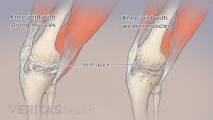
Recently Diagnosed or Relapsed? Stop Looking For a Miracle Cure, and Use Evidence-Based Therapies To Enhance Your Treatment and Prolong Your Remission
Multiple Myeloma an incurable disease, but I have spent the last 25 years in remission using a blend of conventional oncology and evidence-based nutrition, supplementation, and lifestyle therapies from peer-reviewed studies that your oncologist probably hasn't told you about.
Click the orange button to the right to learn more about what you can start doing today.
- You are here:
- Home »
- Blog »
- Healthy Living Products »
- Multiple Myeloma Survival- Magnesium, Beet Root and Protein Shakes?
Multiple Myeloma Survival- Magnesium, Beet Root and Protein Shakes?

“…70 to 80 percent of those older than 70 — aren’t meeting their daily magnesium needs. Women should be getting 320 milligrams per day; men, 420 mg…”
Hi Dave- I trust you are well. I am doing very well. I’ve recently added two new supplements to my lifestyle. Was wondering if you’ve ever came across any research stating these help or hurt smoldering multiple myeloma, multiple myeloma survival (SMM/MM).
- Ancient Minerals brand transdermal magnesium lotion. I use this on my knees post workout.
- I recently added organic beet juice powder to my pre-workout water. I consume this 1 hour before working out. The claim is that that it increases nitric oxide and increases workout endurance. It does help. I’ve also added it to my post workout plant-based protein shake.
Feeling great which I know is a good representation of my over-all health.
Thanks again for your feedback. Eli
Hi Eli-
- what form of magnesium is “best?” (forms such as magnesium citrate, glycinate, orotate and carbonate).
- And then what is the “best” method for ingesting magnesium- oral, intravenous or transdermal?
- MM Survivor
- MM Cancer Coach
- Director PeopleBeatingCancer
Recommended Reading:
Magnesium is essential to your health, but many people don’t get enough of it
“Ask most people to name a nutrient lacking in the American diet, and the top answers would probably be calcium, vitamin D or fiber. Though all nutrients are essential for good health, few are more crucial to focus on than magnesium — because we don’t usually get enough in our diet and none of our cells could function without it.Cells need the mineral to produce ATP, a compound dubbed the body’s “energy currency,” says Fudi Wang, a professor of nutrition at Zhejiang University in China, because it’s the bank that cells draw on to power their functions. In particular, magnesium is involved in regulating blood pressure, blood sugar, heart rate and nerve transmission.
But nearly half of all Americans — and 70 to 80 percent of those older than 70 — aren’t meeting their daily magnesium needs. Women should be getting 320 milligrams per day; men, 420 mg…”
10 Interesting Types of Magnesium (and What to Use Each For)
“Magnesium is the fourth most abundant mineral in your body.
It’s involved in over 300 metabolic reactions that are essential for human health, including energy production, blood pressure regulation, nerve signal transmission, and muscle contraction (1Trusted Source).
Interestingly, low levels are linked to a variety of illnesses, such as type 2 diabetes, heart disease, mood disorders, and migraines (2Trusted Source).
Although this mineral is present in many whole foods like green leafy vegetables, legumes, nuts, and seeds, up to two-thirds of people in the Western world don’t meet their magnesium needs with diet alone (1Trusted Source).
To boost intake, many people turn to supplements. However, as multiple varieties of supplemental magnesium exist, it can be difficult to know which one is most appropriate for your needs.
This article reviews 10 various forms of magnesium, as well as their uses…”
SuperBeets Review: Powerful Powder or Fad?
What are the benefits of protein powder?
There are many different types of protein powder, including dairy-based and plant-based powders. In this article, we discuss some of the health benefits of protein powder and the different types available.

